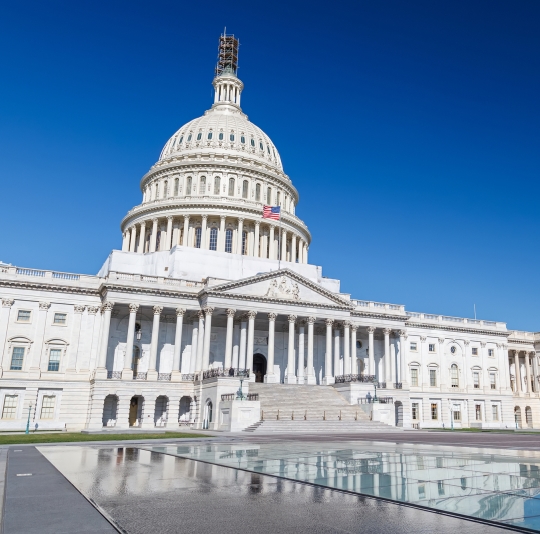Press Releases
Wexton and Burgess Lead Bipartisan Letter Urging FDA to Protect Access to Compounded Hormone Therapies
Washington,
June 20, 2023
Washington, DC – Today, U.S. Representatives Jennifer Wexton (D-VA) and Michael C. Burgess, M.D. (R-TX) led 23 of their colleagues in sending a bipartisan letter urging the Food and Drug Administration (FDA) to create patient-centered compound hormones policies that maintain patients' access to care and treatment options. Compounded hormone therapies are key in aiding the well-being and quality of care for millions of women and other patients, especially those going through menopause, seeking treatment for fertility challenges, or facing other hormonal imbalances. “Compounded hormone therapies are an essential tool to help millions of Americans get the personalized medical care they need,” said Rep. Wexton. “I’m proud to lead this bipartisan effort with Rep. Burgess to protect access to the best possible care options that patients deserve, especially for the millions of women and other patients who rely on compounded hormone therapies.” "By advocating for patient-centered compounded hormone therapy policies, we ensure that millions of individuals maintain access to the personalized medical care they require,” said Rep. Burgess. “Compounded hormone therapies are an indispensable tool in delivering the best possible care options, and it is our duty to protect and preserve this vital resource." Wexton and Burgess are taking action in response to a recent report from the National Academies of Science, Engineering, and Medicine (NASEM) which contains numerous concerning recommendations which, if implemented, would limit or eliminate access to important compounded hormone therapies. The letter emphasizes the value of compounded medicines and their importance in a prescribing physician’s ability to uniquely tailor and personalize medications to meet the needs of their patients. Compounded medicines are often used by medical providers to meet a patient’s individual needs, such as a different dosage level, delivery method, or a combination of hormones than what is included in manufactured products. Research shows that up to 2.5 million women in the U.S. 40 years of age or older may rely on compounded hormones like estriol, estradiol, and progesterone. In addition to Wexton and Burgess, the letter is signed by Representatives Mark E. Amodei (R-NV), Brian Babin, D.D.S. (R-TX), Stephanie Bice (R-OK), Jerry L. Carl (R-AL), Earl L. “ Buddy” Carter (R-GA), Kathy Castor (D-FL), Henry Cuellar (D-TX), Diana DeGette (D-CO), Mario Diaz-Balart (R-FL), Neal P. Dunn, M.D. (R-FL), Brian Fitzpatrick (R-PA), Diana Harshbarger (R-TN), Clay Higgins (R-LA), Debbie Lesko (R-AZ), Marianne Miller-Meeks (R-IA), John R. Moolenaar (R-MI), Gregory F. Murphy, M.D. (R-NC), Gary J. Palmer (R-AL), Jimmy Panetta (D-CA), Mark Pocan (D-WI), C.A. Dutch Ruppersberger (D-MD), Austin Scott (R-GA), and Robert J. Wittman (R-VA). The full text of the letter can be found here and below:
June 20, 2023 The Honorable Robert Califf, MD
Dear Commissioner Califf: We write to express our continued concern that millions of Americans, including many of our constituents, could lose access to compounded hormone therapies if FDA implements the recommendations contained in a July 2020 report by the National Academies of Sciences, Engineering, and Medicine (NASEM). As you know, patients and health care practitioners rely on compounded hormone therapies when commercially available options are not appropriate for individual patients, but the recommendations in the NASEM report, titled The Clinical Utility of Compounded Bioidentical Hormone Therapy: A Review of Safety, Effectiveness, and Use, could severely reduce or eliminate access to these critical medications. Medical providers may prescribe a compounded hormone therapy for several reasons, such as when patients have an allergy or intolerance to commercially available products, requires a modified dosage level or delivery method, or needs a different combination of hormones. Unfortunately, the recommendations in the NASEM report would limit the ability of prescribers to order the most appropriate medicine for their patient. Additionally, the recommendations in the NASEM report, if implemented, would have a disproportionate impact on patients experiencing age-related hormone changes. As the NASEM itself notes, “[m]illions of men and women use cBHTs to alleviate symptoms associated with age-related hormone changes, such as hot flashes in menopause, or low muscle mass due to decreased testosterone.” Given the number of patients who rely on these treatments, and that the FDA-approved bioidentical hormone drug products that are commercially available are not appropriate for all individuals, we continue to urge FDA to cautiously approach this issue and strive to avoid disruption to care. Finally, we are concerned by reports from stakeholders that the NASEM committee that produced the report may not have included all relevant perspectives, including prescribers or compounders of hormone products. We are also aware of concerns that the report was based on a relatively limited number of studies, and that other available studies show that compounded hormone therapies provided improved patient health. We urge you to consider the perspective of all stakeholders, including prescribers, compounders, and patients, to ensure FDA policies related to compounded hormones are patient-centered and do not limit access to care and treatment options. Thank you for taking these considerations into account. We look forward to your response.
Sincerely, ### |



